CPJ: Record 259 journalists jailed around the world
A total of 259 journalists are currently in jails in 31 countries, including 53 jailed in the Middle East. The report from the Committee to Protect Journalists notes that Turkey has the largest number of jailed journalists, 81, followed by China, with 38. Despite political criticism of Russia, that country only has two journalists in jail
By Ray Hanania
The fate of journalism is based almost entirely on the politics of the country engaged in the oppression. A total of 259 journalists working in 31 foreign countries, not including the United States, are currently in jail, allegedly for their journalism work.
Six nations of the Middle East have jailed a total of 53 journalists, according to the CPJ which monitors press freedoms around the world.
The CPJ is one of the most important organizations monitoring journalism freedom in the world, next only to Reporters without Borders, which this year reports that 348 journalists are imprisoned worldwide.
One of the issues is in how these cases of journalists are defined. For example, the CPJ monitors “journalists arrested because of their journalism.” That’s an important distinction, but not a reflection on the commitment of the staff of the CPJ which works hard to monitor and support journalistic freedoms.
Reporters without Borders defines its mission as documenting “abuses against journalists and on all forms of censorship, explaining how the two agencies have different numbers.
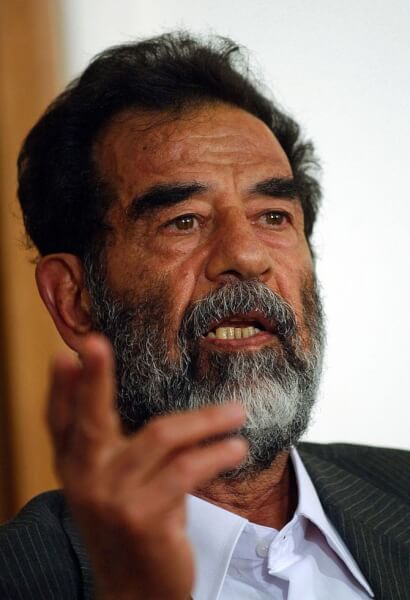
But one factor not considered, and that has allowed the United States to slip under the radar screen when it comes to the oppression of journalists, is the definition of who is and who isn’t a “journalist.”
In many Arab countries, the issue is easily defined as anyone who writes or communicates about news or politics in any form in that country. Many “journalists” are not recognizes as being “journalists” but are subject to arrest and detention in countries around the world, especially in the United States.
Part of the criteria is that the definition of who is and who isn’t a journalist comes from the established journalist organizations themselves. In many Arab countries, the journalism industry loosely defines journalism, while int he United States, the news media is biased and more closely linked to the government definition of journalists.
Excluded from coverage in the United States, for example, are journalists whom the mainstream American news media refuses to recognize as journalists and who happen to originate from Arab countries. Their writing is focused mainly on criticism of both the United States and Israel, which receives billions in support from American taxpayers, and special legislative protections that apply only to Israel but to few other foreign countries.
American Arab journalists are arrested, threatened and harassed all the time in America because of their writings and their criticism of Israel.
For example, journalists who have been writing about the illegal confiscation of Christian and Muslim lands by Israel in the occupied West Bank and East Jerusalem are not considered “journalists” by the traditional mainstream American news media or the U.S. Government.
As a consequence, 19 American states have adopted punitive laws to punish organizations that support these journalists who advocate boycotting Israel because of its civil rights violations and apartheid-like policies against Palestinians.
These activists operating under the lose umbrella of the “BDS” (Boycott, Divest, Sanction) movement, have been targeted not only by these American politicians but also by Israel.
Among the 31 states identified as jailing journalists in the Middle East, the CPJ lists journalists jailed in “Israel and the Occupied Palestinian Territories.” But all seven of the journalists now in jail are journalists arrested and targeted by Israel, not by the Palestinian authority.
What’s fascinating is that both Israel and the United States play a game of semantics in violating civil rights and oppressing journalists. Israel has arrested seven journalists but actually has arrested even more. The United States has also harassed, arrested and jailed many journalists, especially American Arab journalists, but they classify them as “terrorists,” or “criminals” and they avoid defining their crimes as being their “journalism” work.
American Crackdown on critics of Israel
In 2004, for example, the United States Justice Department arrested three American Arab journalists and accused them, falsely, of engaging in terrorism in support of Sami al-Arian, who was eventually acquitted of all charges. After more than a year of persecution, incarceration and public denigration, a jury also acquitted of all charges two of al-Arian’s co-defendants, Sameeh Hammoudeh and Ghassan Zayed Ballut. A third alleged conspirator, Hatem Naji Fariz, was found not guilty on 24 counts, and jurors deadlocked on the remaining eight.
I know Ballut, Fariz and Hammoudeh. All of them were important Palestinian American writers and journalists who criticized Israel’s brutality against civilians.
Another journalist who was targeted and charged and convicted was Khaled Abdel-Latif Dumeisi (Damisi), who published a twice-weekly Palestinian-focused newspaper in Chicagoland until he was accused in April 2002 of providing material support to Iraq’s Saddam Hussein.
I also knew Dumeisi, a dedicated journalist committed to advocating freedom for Palestinians who was also a very strong critic of the pro-Israel policies of the United States government. At one time, his Arab newspaper, Al-Mahjar (the Diaspora), was one of the most read Arabic language newspapers in the Midwest.
The charges against Dumeisi were unique and unusual, and specious. Dumeisi was accused of helping Saddam Hussein to identify critics of his government who lived in the United States. The Justice Department asserted Dumeisi published provocative articles supportive of Saddam Hussein that goaded Saddam Hussein’s critics living in the United States to speak out publicly in anger, and thus identify themselves.
In a racist jab against all American Arabs, the Justice Department asserted that Dumeisi was known to Iraqi secret service agents as “Sirhan.” There was no mention in the indictment of how Saddam Hussein was trained and funded in the 1980s by the U.S. Government.
Al-Mahjar Newspaper allegedly received advertising funds from businesses and sources sympathetic to Saddam Hussein.
Dumeisi was convicted of four counts of acting as a “foreign agent” and for perjury on his immigration forms, both questionable claims. (Click to download the PDF indictment.)
Dumeisi was never classified by anyone as a journalist incarcerated by the U.S. Government. It didn’t make international “free journalism” movements. None of the major American news media viewed Dumeisi’s incarceration as being driven by suppression of free speech and they just took the government’s word that Dumeisi was a “secret agent” working for America’s Most Wanted International criminal Saddam Hussein.
He was sentenced to 46 months in prison and deported to Jordan where his fate has remained unknown. And while the mainstream American newspaper never recognized him as a journalist, because he is Palestinian Arab, the media covered his trial promoting the propaganda charges against him. Not one media stood up in his defense, though several authors have acknowledged that conviction for violating the Foreign Agents Registration Act (FARA) is extremely rare, and clearly very selective.
Ironically, many of the journalists in the Arab World fall into similar circumstances in their countries.
The lists of jailed journalists include: 7 in Bahrain, 25 in Egypt, 6 in Saudi Arabia, 7 in Syria and 1 in Tunisia.
There are 7 Palestinian journalists jailed in Israel, without a protest from the United States government under President Barack Obama, who has proven himself to be one of Israel’s strongest advocates, despite his empty words critical of Israel’s settlements.
Here is the list of Palestinians jailed by Israel, from research provided by the Committee to Protect Journalists:
Israel and the Occupied Palestinian Territories: 7
Ali Aliwiwe, Radio 4
Ali Aliwiwe, the host of an evening news program on Palestinian Radio 4, was arrested by Israeli security forces at his home in the West Bank city of Hebron at 2:30 a.m. on October 21, 2015, an hour after he returned from work, his boss told CPJ.
Raed al-Atrash, the head of national and political programs at the station, told CPJ that Aliwiwe was put in administrative detention in Ofer prison, southwest of the West Bank city of Ramallah. Under administrative detention procedures, authorities may hold detainees for six months without charge or trial and extend the detention an unlimited number of times.
CPJ asked the Israel Defense Forces about the arrests of 10 Palestinian journalists, including Aliwiwe, and whether the arrests were linked to their journalism.
In an emailed response on October 10, 2016, its Public Appeals Office said Aliwiwe and other journalists were detained due to activity in terror organizations including Hamas and the Popular Front for the Liberation of Palestine (PFLP), and that their detention was a preventative measure taken to neutralize a security threat that could not be addressed by criminal trial because of classified information. The statement did not specify exact legal charges against any of the journalists or in which organization the individuals were suspected of involvement.
In December 2015, Aliwiwe was moved to the Negev detention facility in south Israel and his detention was renewed twice, his sister Susan Aliwiwe told CPJ.
On the evening of Aliwiwe’s arrest, Radio 4 covered the shooting of Bashar and Hussam Jabari, teenage cousins who were killed by the Israel Defense Forces in Hebron after a soldier was wounded. Israeli authorities circulated images showing the bodies of the boys next to knives. Palestinian residents disputed the authenticity of the images, saying the knives had been planted.
A Radio 4 correspondent interviewed residents and relayed developments to Aliwiwe, who was in the studio. Aliwiwe was broadcasting live until 1 a.m., the channel’s director, Riyad al-Khamis, who was in the studio with him at the time, told CPJ in an interview at the station’s office in September 2016. Al-Khamis described Aliwiwe’s broadcasts as “very professional” and said, “We were covering a fast-moving story the best we could.”
CPJ was not able to independently review Aliwiwe’s radio broadcasts.
Aliwiwe’s arrest came during an especially tense period, amid a wave of Palestinians stabbing Israeli soldiers and civilians, and Israeli security forces shooting assailants, alleged assailants and protesters. Israeli officials have accused Palestinian news outlets, as well as individuals on Facebook, of encouraging Palestinian attacks and inciting violence with their broadcasts. Several Palestinian channels have been closed down in the past year and dozens of individuals–including journalists–have been arrested for incitement, either through the media or on Facebook, according to media reports.
Al-Khamis denied that Aliwiwe or any of his colleagues incited listeners to violence. “There was no incitement [in our coverage] at all,” al-Khamis said. Al-Atrash called on the Israeli authorities to provide a “clear definition of incitement so we can stay away from it.”
On the morning of his arrest, Aliwiwe was questioned about his work for Radio 4 and his posts on Facebook, his sister told CPJ. She said her brother was not a member of Hamas.
In his Facebook account, which Aliwiwe used to solicit and disseminate information for and about his broadcasts, Aliwiwe reported closely on the violence in the weeks before his arrest. In his social media posts, reviewed by CPJ, Aliwiwe accused Israeli forces of “executing” Palestinians “in cold blood” on the pretext that they had attempted to carry out stabbings, and shared interviews conducted by his station with families of killed Palestinians. In a post the night of his arrest, Aliwiwe shared his station’s report about an Israeli settler who was run over by a Palestinian driver and killed.
In 2016, Radio 4 was shut down twice by the Israel Defense Forces for between 24 and 48 hours for unknown reasons, al-Khamis said. The station’s employees have adopted a policy of taking all recording equipment home every evening to prevent it being confiscated or destroyed, he said.
Aliwiwe’s October 2015 arrest came less than a month after he was released from six months of administrative detention. During that time Aliwiwe was questioned about his work for the station and an intelligence officer warned him against using his work at the station to incite violence, according to Al-Atrash.
Aliwiwe has Crohn’s disease, which has been worsening in prison because he cannot maintain the diet needed to keep the condition under control, his sister said.
Omar Nazzal, Pelest
Palestinian writer Omar Nazzal was arrested by the Israel Defense Forces at Allenby Bridge crossing between the West Bank and Jordan on April 23, 2016, en route to a general meeting of the European Federation of Journalists in Sarajevo, the federation said in a statement condemning the arrest.
On May 2, 2016, Nazzal was transferred to administrative detention, his lawyer, Mahmoud Hassan, said. Under administrative detention laws, detainees may be held for up to six months without charge or trial and their detention can be renewed an unlimited number of times. In November, his detention was renewed for third time, for at least a further three months, local media reported.
CPJ asked the Israel Defense Forces about the arrests of 10 Palestinian journalists, including Nazzal, and whether the arrests were linked to their journalism.
In an emailed response on October 10, 2016, its Public Appeals Office said Nazzal and other journalists were detained due to activity in terror organizations including Hamas and the Popular Front for the Liberation of Palestine (PFLP), and that their detention was a preventative measure taken to neutralize a security threat that could not be addressed by criminal trial because of classified information. The statement did not specify exact legal charges against any of the journalists or in which organization the individuals were suspected of involvement.
Nazzal ran the West Bank office of news website Pelest, commissioning and editing articles, the outlet said in emailed statement to CPJ. He also wrote op-eds for Al-Hadaf, a newspaper affiliated with the Popular Front for the Liberation of Palestine. Nazzal is a Palestinian Journalist Syndicate board member and official spokesperson for the body, Montasr Hamdan, a member of its general secretariat, told CPJ. He also worked for the University of Birzeit’s Media Development Centerin an advisory role, Hamdan added.
Hassan, the writer’s lawyer, told CPJ during a meeting at the office of Addameer, a human rights and prison support non-governmental organization in Ramallah, that he believes Nazzal’s journalism is central to his imprisonment. “He is very prominent and his opinion carries a lot of weight…This arrest silences him,” Hassan said.
In the weeks before his arrest, Nazzal shared statements on Facebook criticizingIsrael’s crackdown on Palestinian media, including the closure of Palestine Today, an Islamic Jihad-affiliated TV channel that was raided and shut down by the Israel Defense Forces in March 2016. Islamic Jihad is designated a terrorist organization by Israel and the group is banned from operating in the country. Israel accused the channel of inciting violence against civilians. Nazzal had worked as a news editor at Palestine Today, but left in January 2016 to work for Pelest, channel spokesperson Ali Murad told CPJ.
In February 2016, Nazzal wrote an op-ed for Al-Hadaf about Omar al-Nayef, a member of the Popular Front for the Liberation of Palestine who was convicted of the 1986 murder of an Israeli student in Jerusalem. Al-Nayef, who had been living as a fugitive in Bulgaria for over 20 years, died in the Palestinian embassy in Sofia in February 2016, in what his brother described as an assassination by Mossad agents. His brother said in interviews that the killing potentially included the cooperation of the Palestinian diplomatic mission. The Palestinian Authority and Israel’s foreign ministry both denied involvement in his death. Nazzal paid tribute to the life of al-Nayef in the op-ed, but did not repeat the claims that Mossad was involved.
The attorney, Hassan, said he believed Nazzal’s article was one of the reasons for his arrest, but said that details of his case are in a secret file and he does have access to the exact accusations against his client.
A senior editor at Al-Hadaf, Jamal Meqdad, told CPJ in a written statement “It is thought that the main reason for his arrest is his journalism, especially his role in exposing the violations of the [Israeli] occupation.”
Meqdad said that although Nazzal agreed with some of the principles of the Popular Front for the Liberation of Palestine, such as secularism, he was not a member of the group.
Nazzal had been banned from travelling outside Israel and the Occupied Palestinian Territory since 2014 for unknown reasons, Hassan said, noting, “He was never questioned as part of the ban…and the reason for it was kept secret.” In April 2016 Nazzal was granted permission by the local District Coordination Office, a body run jointly by Israel and the Palestinian Authority to coordinate the movement of Palestinians in the West Bank, to leave the country and attend the European Federation of Journalists conference. The arrest at Allenby Bridge suggests coordination between the Palestinian Authority and Israel, “both of whom were angered by the article about al-Nayef,” Hassan said.
The local District Coordination Office did not respond to CPJ’s request for comment in October 2016.
Nazzal began a two-week hunger strike on August 4, to protest his administrative detention and in support of Bilal Kayid, a member of the Popular Front for the Liberation of Palestine who had been on hunger strike in prison for 50 days. Hassan said he convinced Nazzal to end his hunger strike after he lost weight and became ill.
Adib al-Atrash, Palestine Post
Adib al-Atrash, a stringer for Palestine Post, was arrested by Israeli security forces at dawn from his family home in the West Bank city of Hebron, his fiancée Shatha Zghayer told CPJ, confirming local media reports. Zghayer told CPJ she does not know why he was arrested.
Al-Atrash is being held in administrative detention in Ofer prison south of Ramallah, his lawyer Nimr Abu Omar told CPJ. Under administrative detention procedures, authorities may hold detainees for six months without charge or trial and extend the detention an unlimited number of times.
On September 20, 2016, al-Atrash’s detention was renewed for a further three months, Abu Omar said. He told CPJ it was not possible to know whether al-Atrash was arrested for his work as a journalist because the case against him is in a secret file to which he doesn’t have access.
CPJ asked the Israel Defense Forces about the arrests of 10 Palestinian journalists, including al-Atrash, and whether the arrests were linked to their journalism.
In an emailed response on October 10, 2016, its Public Appeals Office said al-Atrash and other journalists were detained due to activity in terror organizations including Hamas and the Popular Front for the Liberation of Palestine (PFLP), and that their detention was a preventative measure taken to neutralize a security threat that could not be addressed by criminal trial because of classified information. The statement did not specify exact legal charges against any of the journalists or in which organization the individuals were suspected of involvement.
Al-Atrash worked as a Hebron-based stringer for Palestine Post, a Palestinian outlet that shares content via Facebook and Twitter, an employee told CPJ via Facebook messenger. The outlet’s reporting includes updates on Israel Defense Forces activity, including images, and shares content from other sites. The employee, who did not provide a name, did not respond to further questions about whether al-Atrash’s arrest may be linked with his work, or his role at the outlet.
Al-Atrash previously worked as a media researcher for the Ro’ya Center for Studies and Research, a think tank based in Hamas-ruled Gaza. The think tank, which describes itself as an independent institute dedicated to research in the Arab world, particularly Palestine/Israel, did not respond to CPJ’s telephone and emailed requests for comment on September 25, 2016.
On May 2, 2016, two months before his arrest, al-Atrash was detained and questioned by Palestinian intelligence services for several hours, Palestinian press freedom monitor MADA reported. Zghayer said al-Atrash was asked about his studies, his work for Ro’ya and his political affiliation. The West Bank-based Fatah movement and Hamas in Gaza are long-standing political rivals, and harass and question journalists and activists who criticize their rule.
Ahmad Darawish, Al-Sanabel Radio
Darawish, the manager of Al-Sanabel Radio, was arrested by Israeli soldiers from his home in the West Bank town of Dura during the night, his lawyer Mahmoud Hassan told CPJ. Three journalists and a media worker at the local radio station, which employed eight people, were arrested the same date and Israel Defense Forces raided the channel’s headquarters, seizing broadcasting equipment and using a court order to shut down the outlet for at least three months, Palestinian media reported.
Darawish, journalists Nidal Amro, Mohammed Imran, and Montasser Nassar, and sound engineer Hamed al-Namoura–were referred to trial on September 18, 2016. As of December 1, 2016, they had not been sentenced.
CPJ has reviewed a translated summary of the Israeli Military Prosecution’s indictment against Darawish, in which he is charged with “incitement, support of a hostile organization…performing a service for a hostile organization … [and] the publication of reports of military value,” in which he is accused of encouraging violence against Israeli soldiers and civilians through al-Sanabel broadcasts, revealing information about the location of Israel Defense Forces personnel in Dura through broadcasts, and supporting and aiding Hamas. He is also accused of hiring staff who broadcast inciting material and being responsible for their content.
The indictment says it is an offence to publish reports of military value. It adds that in the two years before his arrest Darawishhad shared on his Facebook page and via the radio station details including the location and movement of troops, current or planned actions, and details of weapons and supplies. It added that this information was given “in conjunction with playing songs that signify a call to attack security forces.”
The arrests came during an especially tense period, amid a wave of Palestinians stabbing Israeli soldiers and civilians, and Israeli security forces shooting assailants, alleged assailants, and protesters. Israeli officials have accused Palestinian news outlets, as well as individuals on Facebook, of encouraging Palestinian attacks and inciting violence with their broadcasts. Several Palestinian channels have been closed down in the past year and dozens of individuals–including journalists–have been arrested for incitement, either through the media or on Facebook, according to media reports.
Darawish’s indictment gives seven examples of incitement allegedly carried out through Al-Sanabel Radio broadcasts from July 4, 2016 to August 20, 2016.
In four of the examples, Al-Sanabel staff were reporting live on Israel Defense Forces nighttime raids in Dura and providing updates on the location of soldiers. No examples of employees using language that directly incited imminent violence are provided in the indictment. Breaks in the live broadcasts were filled with music and speeches that the indictment describes as “incendiary.”
Some of the song lyrics and speeches quoted in the indictment include:
“I will never put down my weapon… my weapon will forever remain in my hands… My weapon stays, my weapon stays.”
“I’m coming at you oh my enemy, from every house, and neighborhood and street, with my weapon and my faith, I’m coming at you.”
“The land of Palestine is for you respected ones, those who raise the knife and the stone. We will destroy Israel and protect our land… Street war has begun in Palestine… We will deny you movement oh settlers… Our border is from sea to sea… The masked men have left the mosques and Palestine flags are in every corner. Going down to the square with a stone in my hand, destined for the enemy… And the old man holds the gun in his hands.”
“Say Allahu akbar, burn those who wear green. The youngest boy will burn the jeep. Oh Yossi, tell all your dogs, Dura will throw a revolution and the smallest child will burn a jeep. There are boys in Dura who will burn your army if it advances, oh Yossi. You will regret it.”
A journalist from Al-Sanabel denied that the station was inciting violence through its content. In an interview in Dura, the journalist–who asked not to be named for fear of arrest–said the songs were on a pre-selected playlist and aired to allow the hosts a break during long reporting shifts, rather than coordinated to follow particular news stories or encourage violence. “The songs we chose to play are patriotic. They are mostly from the Second Intifada and everybody knows them,” the journalist said. “Palestinians have been playing the same songs for years, so why are they suddenly now incitement?”
The journalist said none of the songs and speeches aired by Al-Sanabel that were cited in the official indictment were written or produced by the radio station.
The other three examples of incitement in the indictment consist of sharing content on Al-Sanabel’s Facebook page that commemorated and glorified the life of Mohammed al-Fakih, a Dura resident killed by the Israel Defense Forces in a shootout on July 27, 2016, three weeks after he killed Israeli Rabbi Michael Mark and wounding three others.
The first examples cited were posted on July 29, 2016. In the first, Al-Sanabel called on listeners to attend a rally in Dura to celebrate al-Fakih.
The second live streamed the rally on the Facebook page. During the rally, Hamas leader Ismail Haniyeh addresses the crowd via phone.
In the third example, on August 20 a trailer for a movie about al-Fakih was postedon its page. It showed a reconstruction of the killing of Mark and clips of interviews with family members describing al-Fakih’s actions as heroic.
Hassan, Al-Sanabel’s attorney, said Israel did not have a clear, public definition of incitement through the media, and this posed a challenge for journalists who do not know what content is within the law and what is illegal. He added that he had seen a “big rise” in incitement cases in 2016.
In a statement emailed to CPJ on October 10, 2016, the Israel Defense Forces’ Public Appeals Office said, “The IDF sees freedom of speech and freedom of press as fundamental rights… but we draw a clear line between expressing an opinion (including criticizing the government) and abuse of rights in order to encourage acts of terrorism … and inciting the harm of civilians.”
Mohammed Imran, Al-Sanabel Radio
Imran, a presenter at Al-Sanabel Radio station, was arrested by Israeli soldiers from his home in the West Bank town of Dura during the night, his lawyer Mahmoud Hassan told CPJ. The station’s owner, three other journalists, and a media worker at the local radio station, which employed eight people, were arrested the same day and Israel Defense Forces raided the channel’s headquarters, seizing broadcasting equipment and using a court order to shut down the outlet for at least three months, Palestinian media reported.
Imran, station owner Ahmad DaDarawishrwish, journalists Nidal Amro and Montasser Nassar, and sound engineer Hamed al-Namoura, were referred to trial on September 18, 2016. As of December 1, 2016, they had not been sentenced.
CPJ has reviewed a translated summary of the Israeli Military Prosecution’s indictment against Imran, in which he is accused of inciting violence, revealing information about the location of Israel Defense Forces personnel, and praising terrorists in his broadcasts.
The arrests came during an especially tense period, amid a wave of Palestinians stabbing Israeli soldiers and civilians, and Israeli security forces shooting assailants, alleged assailants, and protesters. Israeli officials have accused Palestinian news outlets, as well as individuals on Facebook, of encouraging Palestinian attacks and inciting violence with their broadcasts. Several Palestinian channels have been closed down in the past year and dozens of individuals— including journalists–have been arrested for incitement, either through the media or on Facebook, according to media reports.
Imran’s indictment lists seven examples of alleged incitement in Al-Sanabel Radio broadcasts. Reporting by Imran is cited in just one of the examples, on July 27, 2016, in a broadcast which has been reviewed by CPJ. No examples of Imran using language that incites imminent violence are provided in the indictment. The only examples listed in the indictment are examples of incitement come from the songs and speeches played between news broadcasts.
On July 27, 2016, Imran was in the studio reporting live on a raid on a house where Mohammed al-Fakih, a Dura resident who killed Israeli Rabbi Michael Mark and injured three others in a drive-by shooting three weeks earlier, was hiding. Imran broadcasted updates for over an hour, covering the position of soldiers, the closure of parts of Dura and surrounding villages, and clashes between residents and the Israel Defense Forces. He called on listeners to be aware of Israel Defense Forces activity and to contribute information in real time on Al-Sanabel’s Facebook page.
In a broadcast reviewed by CPJ, the broadcaster did not use violent rhetoric or incite listeners to take action.
Breaks in the live broadcast were filled with music and speeches that the indictment describes as “incendiary.” Some of the song lyrics and speeches quoted in the indictment include:
“I will never put down my weapon… my weapon will forever remain in my hands… My weapon stays, my weapon stays.”
“I’m coming at you oh my enemy, from every house, and neighborhood and street, with my weapon and my faith, I’m coming at you.”
“The land of Palestine is for you respected ones, those who raise the knife and the stone. We will destroy Israel and protect our land… Street war has begun in Palestine… We will deny you movement oh settlers… Our border is from sea to sea… The masked men have left the mosques and Palestine flags are in every corner. Going down to the square with a stone in my hand, destined for the enemy… And the old man holds the gun in his hands.”
A journalist from Al-Sanabel denied that the station was inciting violence through its content. In an interview in Dura, the journalist, who asked to remain anonymous for fear of arrest, said the songs were on pre-selected playlist and aired to allow the hosts a break during long reporting shifts, rather than coordinated to follow particular news stories or encourage violence. “The songs we chose to play are patriotic. They are mostly from the Second Intifada and everybody knows them,” the journalist said. “Palestinians have been playing the same songs for years, so why are they suddenly now incitement?”
The journalist said none of the songs and speeches cited in the indictment were written or produced by the radio station.
Hassan, Al-Sanabel’s attorney, said Israel did not have a clear, public definition of incitement through the media, and this posed a challenge for journalists who do not know what content is within the law and what is illegal. He added that he had seen a “big rise” in incitement cases in 2016.
In a statement emailed to CPJ on October 10, 2016, the Israel Defense Forces’ Public Appeals Office said, “The IDF sees freedom of speech and freedom of press as fundamental rights… but we draw a clear line between expressing an opinion (including criticizing the government) and abuse of rights in order to encourage acts of terrorism … and inciting the harm of civilians.”
In the indictment, Imran is also accused of inciting violence through his personal Facebook page by publishing the location of forces, videos of clashes and sharing reporting from Al-Sanabel. The indictment provides one specific example of alleged incitement, saying he posted an image of Mohammed Ali and captioned it “commander of the knives.” The indictment did not date the post, and CPJ could not locate it when reviewing his page on October 11, 2016. The indictment likely refers to 19-year-old Mohammed Saeed Ali. Ali who was shot dead while stabbing three officers on October 10, 2015 in East Jerusalem, according to news reports.
Montaser Nassar, Al-Sanabel Radio/RamSat
Nassar, a presenter at Al-Sanabel Radio station, was arrested by the Israel Defense Forces from his home in the West Bank town of Dura during the night, his lawyer Mahmoud Hassan told CPJ. The station’s owner, three other journalists, and a media worker at the local radio station, which employed eight people, were arrested the same day and Israel Defense Forces raided the channel’s headquarters, seizing broadcasting equipment and using a court order to shut down the outlet for at least three months, Palestinian media reported.
Nassar, station owner Ahmad Darawish, journalists Mohammed Imran and Nidal Amro, and sound engineer Hamed al-Namoura, were referred to trial on September 18, 2016. As of December 1, 2016, they had not been sentenced.
CPJ has reviewed a translated summary the Israeli Military Prosecution’s indictment against Nassar, in which he is charged with “incitement, support of a hostile organization… performing a service for a hostile organization … [and] the publication of reports of military value,” in which he is accused of encouraging violence against Israeli soldiers and civilians through Al-Sanabel broadcasts, revealing information about the location of Israel Defense Forces personnel in Dura through broadcasts, and supporting and aiding Hamas.
The arrests came during an especially tense period, amid a wave of Palestinians stabbing Israeli soldiers and civilians, and Israeli security forces shooting assailants, alleged assailants, and protesters. Israeli officials have accused Palestinian news outlets, as well as individuals on Facebook, of encouraging Palestinian attacks and inciting violence with their broadcasts. Several Palestinian channels have been closed down in the past year and dozens of individuals –including journalists– have been arrested for incitement, either through the media or on Facebook, according to media reports.
Reporting by Nassar is cited in two of the seven examples of alleged incitement at the station, on July 4 and July 27, 2016, in broadcasts which have been reviewed by CPJ. No examples of Nassar using language that directly incites imminent violence are provided in the indictment.
In the indictment, Nassar is also accused of having “performed a service for Hamas” through his personal Facebook page and his second job, working as a presenter for RamSat, a TV production company that sells content to Al-Aqsa TV. The Hamas-run channel is banned from operating in Israel and the West Bank. It broadcasts from the Gaza Strip. CPJ attempted to reach RamSat for comment via phone on several occasions, but the calls went unanswered.
In the July 4 radio broadcast, Nassar is one of two correspondents covering nighttime Israel Defense Forces raids in Dura. Speaking to presenter Nidal Amro in the morning after the raids, Nassar recounted the developments of the night, including positions of soldiers. The July 27 broadcast follows the killing of Mohammed al-Fakih in a gun fight with Israel Defense Forces. Al-Fakih, a Dura resident, killed a rabbi and injured three others in a drive-by shooting three weeks earlier. Nassar was in the studio broadcasting live in the hours after al-Fakih’s death. Nassar regularly referred to al-Fakih as a “martyr” and a “hero,” and he called on the public to attend a memorial rally for al-Faqih.
In the July 4 broadcast reviewed by CPJ, Nassar featured for only a few minutes at the end of the broadcast. The language he used to report on the raids was not violent, and his tone was calm.
Breaks in live broadcasts were filled with music and speeches that the indictment describes as “incendiary.” Some of the song lyrics and speeches quoted in the indictment include:
“Martyr Muhammad al-Faqih, may God have mercy on your pure soul. All residents of the West Bank, all residents of Hebron laud you and your falling as a martyr after an armed struggle of more than seven hours in the village of Sureef. God’s mercy on your soul, and may you be admitted, with the help of God, into eternal paradise, oh hero…”
“We are your heroes oh Dura. We are the heroes of stones. We fear not the plane, nor the tank. Oh Dura, the enterprise of men. Oh Dura, heroes of swift response… I know not fear, a stone clenched in my hand, and an AK-47 too.”
A journalist from Al-Sanabel denied that the station was inciting violence through its content. In an interview in Dura, the journalist, who asked to remain anonymous for fear of arrest, said all the songs were on pre-selected playlist, and were aired to allow the hosts a break during long reporting shifts, rather than coordinated to follow particular news stories or encourage violence. “The songs we chose to play are patriotic. They are mostly from the Second Intifada and everybody knows them,” the journalist said. “Palestinians have been playing the same songs for years, so why are they suddenly now incitement?”
The journalist said none of the songs and speeches cited in the indictment had been written or produced by the radio station.
Hassan, Al-Sanabel’s attorney, said Israel did not have a clear, public definition of incitement through the media, and this posed a challenge for journalists who do not know what content is within the law and what is illegal. He added that he had seen a “big rise” in incitement cases in 2016.
In a statement emailed to CPJ on October 10, 2016, the Israel Defense Forces’ Public Appeals Office said, “The IDF sees freedom of speech and freedom of press as fundamental rights… but we draw a clear line between expressing an opinion (including criticizing the government) and abuse of rights in order to encourage acts of terrorism … and inciting the harm of civilians.”
As well as his work at the radio station, Nassar presented several programs on Al-Aqsa, including one that commemorated al-Fakih. On July 13, 2016, he posted photos on Facebook from an interview he carried out with the al-Fakih family about Mohammed al-Fakih, who was in hiding at the time. On July 26, he posted a link to a program he presented for Al-Aqsa about life in Aida refugee camp. Several of the examples in the indictment of Nassar sharing Hamas material on Facebook and streaming programs from Al-Aqsa were not available when CPJ tried to view them in October 2016.
Nidal Amro, Al-Sanabel Radio
Amro, a presenter at Al-Sanabel Radio station, was arrested by the Israel Defense Forces from his home in the West Bank town of Dura during the night, his lawyer Mahmoud Hassan told CPJ. The station’s owner, three other journalists, and a media worker at the local radio station, which employed eight people, were arrested the same day and Israel Defence Forces raided the channel’s headquarters, seizing broadcasting equipment and using a court order to shut down the outlet for at least three months, Palestinian media reported.
Amro, station owner Ahmad Darawish, journalists Mohammed Imran and Montasser Nassar, and sound engineer Hamed al-Namoura–were referred to trial on September 18, 2016. As of December 1, 2016, they had not been sentenced
A translated summary of the Israeli Military Prosecution’s official indictment against Amro, reviewed by CPJ, reads, “Over the past three years, Al-Sanabel has been broadcasting much incendiary content encouraging harm to and revolt against Israeli soldiers and civilians. The journalists are accused of having “routinely published the location of security forces, their movements, and their current actions…in conjunction with playing songs that signify a call to attack security forces.” They are also accused of “support for a hostile organization [Hamas].”
The arrests came during an especially tense period, amid a wave of Palestinians stabbing Israeli soldiers and civilians, and Israeli security forces shooting assailants, alleged assailants, and protesters. Israeli officials have accused Palestinian news outlets, as well as individuals on Facebook, of encouraging Palestinian attacks and inciting violence with their broadcasts. Several Palestinian channels have been closed down in the past year and dozens of individuals –including journalists–have been arrested for incitement, either through the media or on Facebook, according to media reports.
Amro’s reporting is cited in three of the seven examples of alleged incitement at the station. Two of the three broadcasts, on July 4, 2016 and July 27, 2016, have been reviewed by CPJ. The third, dated July 12, 2016, was no longer publically available as of October 12, 2016. No examples of Amro using language that directly incites imminent violence in the broadcasts are provided in the indictment.
In the broadcasts reviewed by CPJ, Amro was in the studio reporting live on nighttime house raids in Dura, interviewing correspondents and residents, and providing updates on the movement and location of soldiers. Amro regularly called on listeners to be aware of Israel Defence Forces’ activity in the town, to be careful while raids are going on, and to contribute information in real time on Al-Sanabel’s Facebook page. The July 27 broadcast covered the raid on Mohammed al-Fakih’s house, a Palestinian from Dura who had killed rabbi Michael Mark and injured three others in a drive-by shooting three weeks earlier. Breaks in live broadcasts were filled with music.
Breaks in live broadcasts were filled with music and speeches that the indictment describes as “incendiary.” Some of the song lyrics and speeches quoted in the indictment include:
“I will never put down my weapon… my weapon will forever remain in my hands… My weapon stays, my weapon stays.”
“I’m coming at you oh my enemy, from every house, and neighborhood and street, with my weapon and my faith, I’m coming at you.”
“The land of Palestine is for you respected ones, those who raise the knife and the stone. We will destroy Israel and protect our land… Street war has begun in Palestine… We will deny you movement oh settlers… Our border is from sea to sea… The masked men have left the mosques and Palestine flags are in every corner. Going down to the square with a stone in my hand, destined for the enemy… And the old man holds the gun in his hands.”
“Say Allahu akbar, burn those who wear green. The youngest boy will burn the jeep. Oh Yossi, tell all your dogs, Dura will throw a revolution and the smallest child will burn a jeep. There are boys in Dura who will burn your army if it advances, oh Yossi. You will regret it.”
A journalist from Al-Sanabel denied that the station was inciting violence through its content. In an interview in Dura, the journalist, who asked to remain anonymous for fear of arrest, said the songs were on pre-selected playlist, and were aired to allow the hosts a break during long reporting shifts, rather than coordinated to follow particular news stories or encourage violence. “The songs we chose to play are patriotic. They are mostly from the Second Intifada and everybody knows them,” the journalist said. “Palestinians have been playing the same songs for years, so why are they suddenly now incitement?”
The journalist said none of the songs and speeches cited in the official indictment had been written or produced by the radio station.
Hassan, Al-Sanabel’s attorney, said Israel did not have a clear, public definition of incitement through the media, and that this posed a challenge for journalists who do not know what content is within the law and what is illegal. He added that he had seen a “big rise” in incitement cases in 2016.
In a statement emailed to CPJ, the Israel Defence Forces’ Public Appeals Office said, “The IDF sees freedom of speech and freedom of press as fundamental rights… but we draw a clear line between expressing an opinion (including criticizing the government) and abuse of rights in order to encourage acts of terrorism … and inciting the harm of civilians.”
The indictment also states Amro is accused of inciting violence through Facebook posts, which CPJ has reviewed. On October 16, 2015, Amro posted a picture of a Palestinian chasing a soldier with a knife, and wrote, “We will chase them in every street, every alley, every home and every neighborhood. Your strength in our land is dying.” On February 24, 2016 the indictment describes Amro as posting a picture of a Palestinian who carried out a stabbing in Gush Etzion settlement, with a comment that read, “You are one of a kind…perpetrator of the heroic stabbing operation.” CPJ found that Amro did not write the comment himself, but shared another person’s photograph that included the description as part of the image. On July 27, 2016, Amro posted three picture of al-Fakih’s bloodied clothes, saying: “…Yes, I held Muhammad’s clothes in my trembling hands, and etched into my heart and memory Muhammad’s message and will, and the last word he said, ‘either victory or martyrdom.'”
Several other examples of alleged Facebook incitement listed in the indictment show Amro sharing Al-Sanabel radio broadcasts, and posting updates about clashes in the town, such as, “The occupation has invaded Dura, concentrating in more than one location. They are also shooting live bullets, rubber bullets, and tear and stun grenades.”


- Israelisnipers shooting and killing hospital workers in Gaza - December 11, 2023
- CAIR Condemns Israeli Executions of Wounded, Unarmed Palestinian in West Bank - December 11, 2023
- Arab and Muslim American voters face a “simple choice” between Biden’s inhumanity and Trump’s edgy politics - December 9, 2023













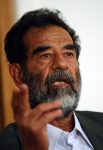


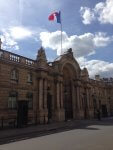



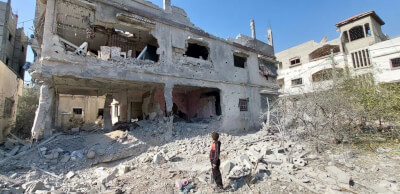
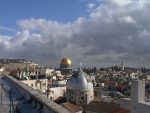

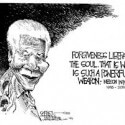
Basically what foreign countries need to do in order to justify their crackdowns on journalists they don’t like in their countries is to accuse them of terrorism, as the United States and Israel do, and that would exclude them from accusations of media crackdowns …